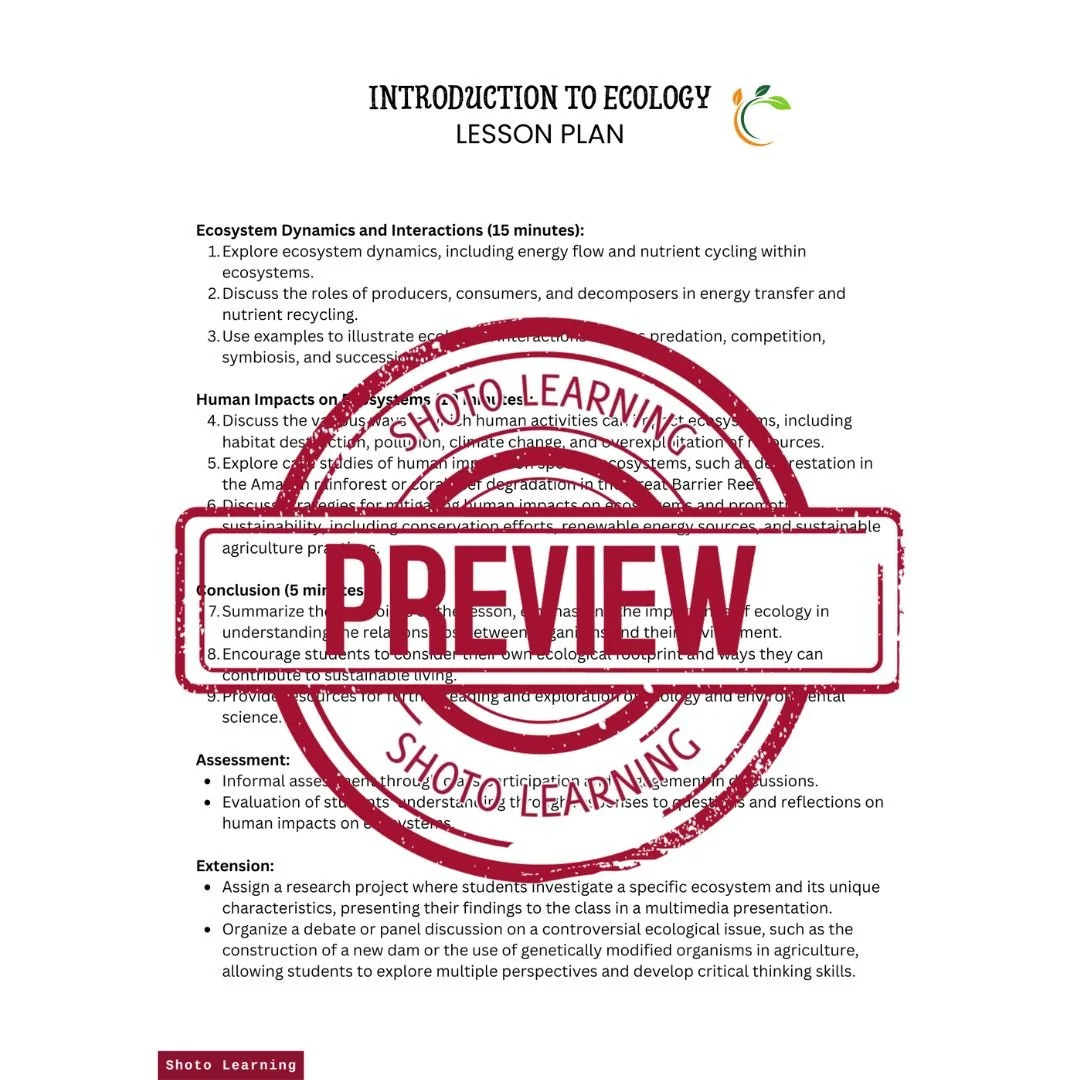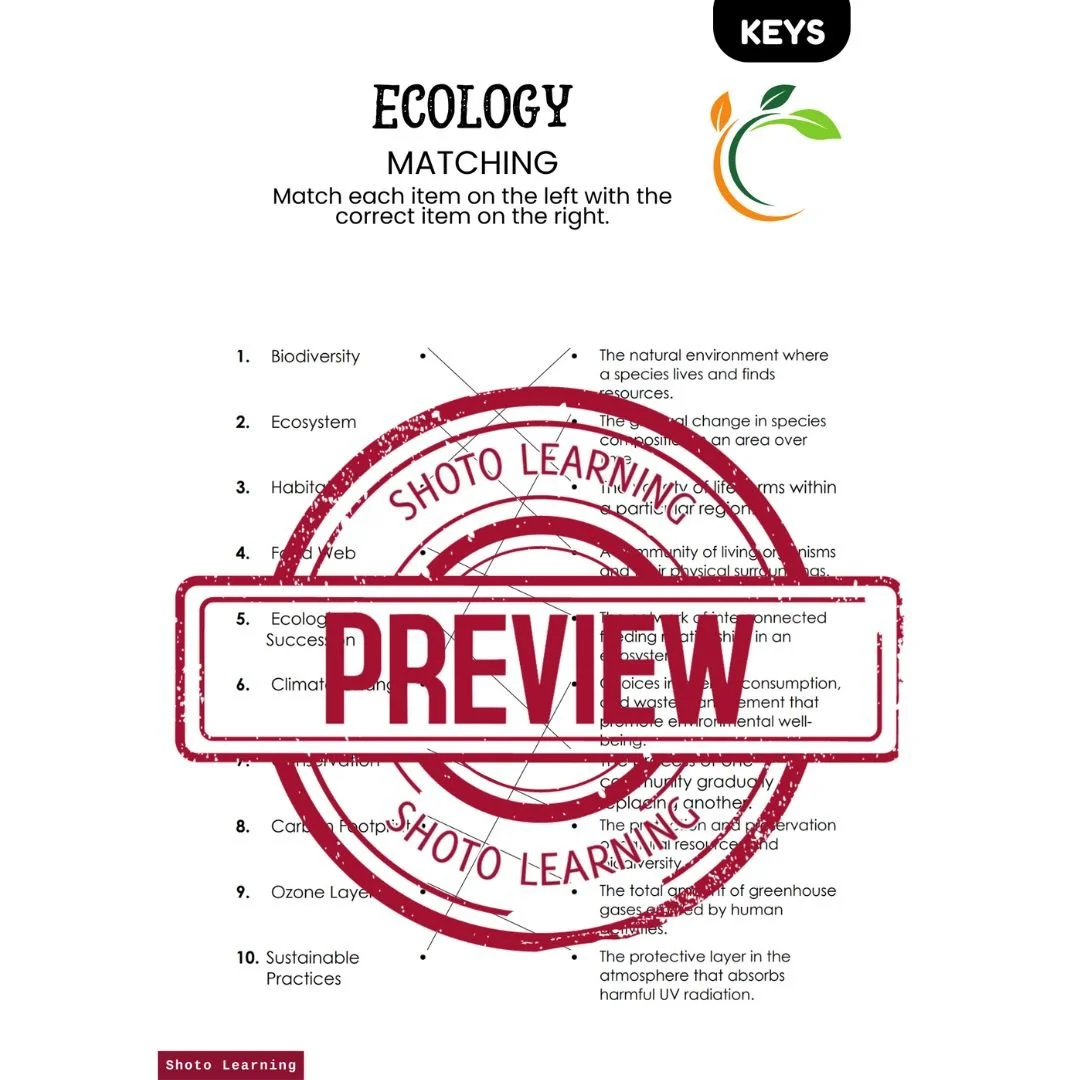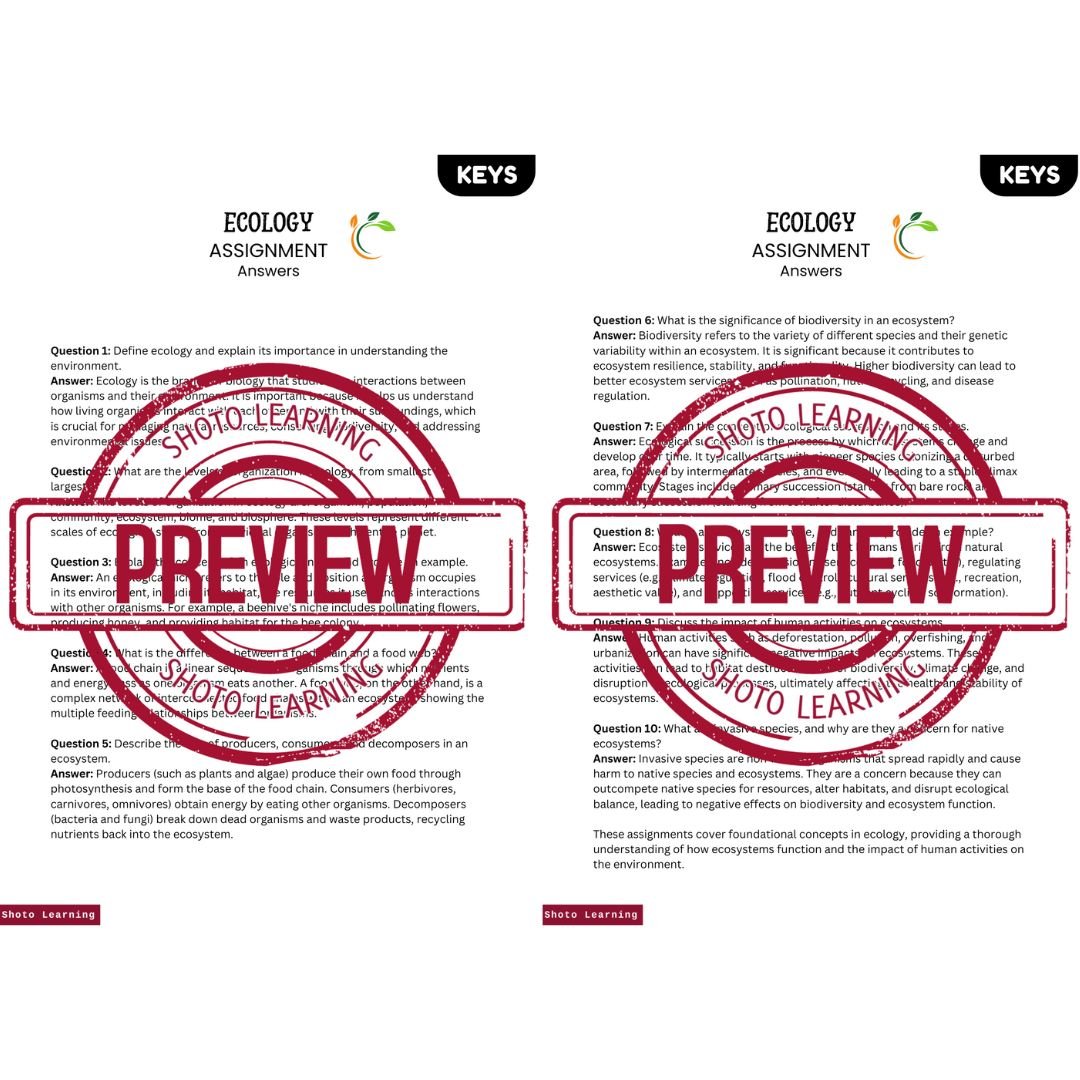 Image 1 of 3
Image 1 of 3

 Image 2 of 3
Image 2 of 3

 Image 3 of 3
Image 3 of 3




Ecological Explorations: Introduction to Ecology Lesson Plan
Embark on a captivating exploration of the natural world with our comprehensive lesson plan, "Ecological Explorations: Introduction to Ecology." Tailored for high school biology classes, this resource provides students with a foundational understanding of ecological principles and ecosystem dynamics.
Key Features:
Comprehensive Learning: Dive into the intricate web of ecological interactions, exploring levels of ecological organization, ecosystem dynamics, and human impacts on the environment.
Engaging Activities: Engage students with interactive discussions, visual aids, and hands-on activities that bring ecological concepts to life and foster critical thinking skills.
Real-World Relevance: Explore case studies and examples of human impacts on ecosystems, encouraging students to consider the importance of sustainability and conservation in today's world.
Practical Application: Provide opportunities for students to apply ecological principles to real-world scenarios, fostering a deeper understanding of the interconnectedness of living organisms and their environment.
Holistic Approach: Take a holistic approach to ecology education, integrating scientific concepts with ethical considerations and societal implications of environmental issues.
How to Use This Lesson Plan:
Review Objectives: Begin by reviewing the lesson objectives and outcomes to understand the focus and goals.
Prepare Materials: Gather all required materials, including handouts, worksheets, and any multimedia resources.
Introduce Topic: Start with a brief introduction to the topic to engage students and set the context.
Follow the Steps: Teach each section as outlined, incorporating suggested activities, discussions, and questions.
Monitor and Adapt: Observe student engagement and understanding; adapt the lesson pace and methods as needed.
Assess Understanding: Use the provided assessment tools to evaluate student comprehension and provide feedback.
Wrap-Up: Summarize key points and provide closure with a reflective activity or homework assignment.
Empower your students to become stewards of the environment and champions of sustainability with "Ecological Explorations: Introduction to Ecology." Ignite curiosity, inspire exploration, and instill a lifelong passion for ecological science.
Order your copy today!
Embark on a captivating exploration of the natural world with our comprehensive lesson plan, "Ecological Explorations: Introduction to Ecology." Tailored for high school biology classes, this resource provides students with a foundational understanding of ecological principles and ecosystem dynamics.
Key Features:
Comprehensive Learning: Dive into the intricate web of ecological interactions, exploring levels of ecological organization, ecosystem dynamics, and human impacts on the environment.
Engaging Activities: Engage students with interactive discussions, visual aids, and hands-on activities that bring ecological concepts to life and foster critical thinking skills.
Real-World Relevance: Explore case studies and examples of human impacts on ecosystems, encouraging students to consider the importance of sustainability and conservation in today's world.
Practical Application: Provide opportunities for students to apply ecological principles to real-world scenarios, fostering a deeper understanding of the interconnectedness of living organisms and their environment.
Holistic Approach: Take a holistic approach to ecology education, integrating scientific concepts with ethical considerations and societal implications of environmental issues.
How to Use This Lesson Plan:
Review Objectives: Begin by reviewing the lesson objectives and outcomes to understand the focus and goals.
Prepare Materials: Gather all required materials, including handouts, worksheets, and any multimedia resources.
Introduce Topic: Start with a brief introduction to the topic to engage students and set the context.
Follow the Steps: Teach each section as outlined, incorporating suggested activities, discussions, and questions.
Monitor and Adapt: Observe student engagement and understanding; adapt the lesson pace and methods as needed.
Assess Understanding: Use the provided assessment tools to evaluate student comprehension and provide feedback.
Wrap-Up: Summarize key points and provide closure with a reflective activity or homework assignment.
Empower your students to become stewards of the environment and champions of sustainability with "Ecological Explorations: Introduction to Ecology." Ignite curiosity, inspire exploration, and instill a lifelong passion for ecological science.
Order your copy today!
Check out our blog for more information - Click Here




















